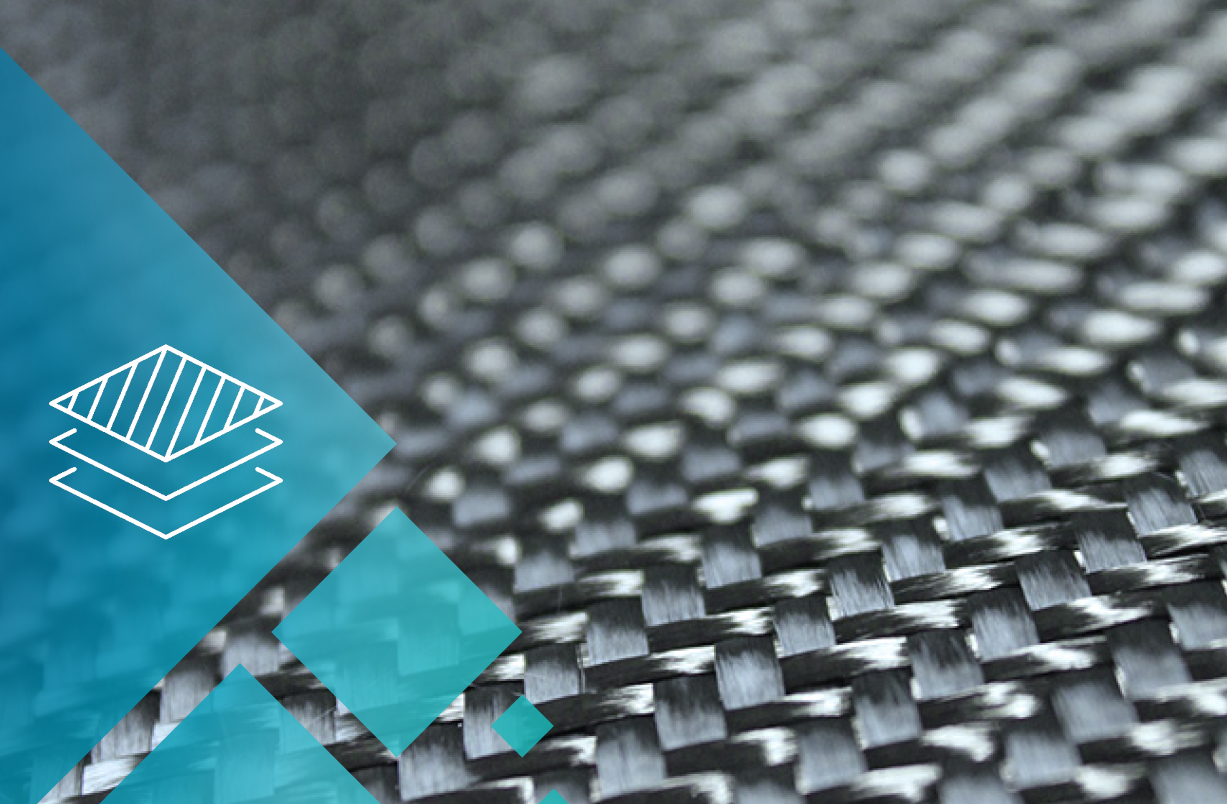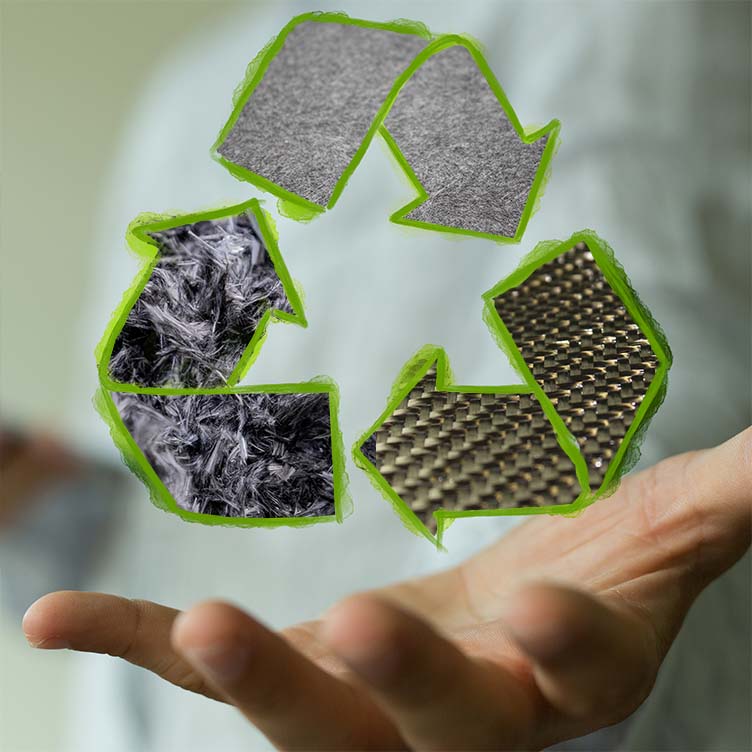There are various manufacturing technologies for the production of composites
From traditional lamination processes to classical injection or pultrusion processes to automated tape laying processes Automated Fiber Placement (AFP), Automated Tape Laying (ATL) and Fiber Patch Placement (FPP), there are numerous options to meet the requirements of different industries. The selection of the appropriate manufacturing technology plays a crucial role in realising composite materials with the desired properties and meeting specific application requirements.
In hand lay-up, several layers of fibre reinforcements are impregnated with resin and draped over each other. This is followed by a vacuum build-up, which discharges excess resin and guarantees dimensional stability during curing. Afterwards, curing takes place under negative pressure and heat in an oven. Alternatively, prepreg can also be used. This is a pre-impregnated fibre semi-finished product, which makes manual brushing with the matrix material unnecessary. But even in this case, a vacuum build-up is necessary for curing in an autoclave or oven (for out-of-autoclave prepreg).
Injection or infiltration processes rely on the use of dry semi-finished products from which complex preforms are manufactured. The preforms are then placed in closed moulds and injected with resin (e.g. resin transfer moulding). Alternatively, the preforms are packed in a vacuum bag and connected with an infiltration set-up. In this case, a vacuum is built up via hoses connected to a vacuum pump, through which the liquid resin is sucked into the preform via a supply line until it is filled. Typical examples are the Vacuum Assisted Resin Infusion process (VARI) or the membrane-supported Vacuum Assisted Process (VAP®).
In addition to these processes, the main focus of Fraunhofer IGCV is on Pultrusion, Automated Fiber Placement, Automated Tape Laying and Fiber Patch Placement.
The manufacturing technology of pultrusion is a continuous process for producing fibre-reinforced plastic profiles. In this process, fibres are drawn through a resin bath and then through a heated moulding tool and cured into profiles in a continuous process.
Automated Fiber Placement (AFP) is a robot-assisted process in which tows (narrow, defined, cut-to-size semi-finished fibre products) are used in various forms (towpreg, prepreg, dry or tows with thermoplastic matrix). The robot places the tows specifically on a laying tool, whereby the tows are pressed onto the laying tool via a roller which is attached to the robot head. This enables the production of complex and final-contour preforms which, depending on the material, must then be cured in an autoclave, consolidated in a press or injected with resin and cured.
Similar to this process is Automated Tape Laying (ATL), which uses wider tapes instead of tows. This allows higher lay-up rates to be achieved at the expense of less complexity. With Fiber Patch Placement (FPP), only so-called patches are used instead of reel material. The length of these patches is limited to the gripper on the laying head of the Fiber Patch Placement system, but they enable the production of very complex preforms that cannot be realised with the previous systems.


